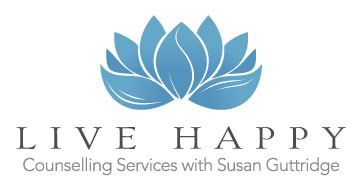|
This article was originally posted on November 1, 2010, to Happy Parents = Happy Kids (focusedonparenting.wordpress.com) by Susan Guttridge The concept of mindfulness has become increasingly popular over the last few years, and involves the ability to notice what is going on for you at any given moment, without judgment. Mindfulness is a learned skill that one acquires through regular practice. For example, if you start to feel some of the physiological sensations of anxiety, stress, or anger, (such as rapid heart beat, shallow breathing, heat in face), it is important to stop what you are doing and ask yourself “what is going on for me right now?”. This will get you present and focusing on yourself in the moment. Answering this question will involve noticing what thoughts you are having that may be contributing to physiological sensations (of increasing frustration, anxiety, anger). It also helps to notice what is going on for you in your environment (the immediate situation). Daniel Siegel (2007), a researcher and author on the topic of mindfulness, describes mindfulness in the following way: “Mindfulness means paying attention, in the present moment, on purpose, without grasping onto judgments. Mindful awareness involves paying attention to whatever arises within the mind from moment to moment. Recent studies of mindful awareness reveal that it can result in improvements in a range of physiological, mental, and interpersonal domains of our lives. People who develop the capacity to pay attention in the present moment without grasping onto their inevitable judgments also develop a deeper sense of well-being.” All too often to tend to ignore what our bodies are telling us and just get on with daily life. We create habits for ourselves of going through each day in a state of ‘mindlessness’. However, in order to maximize our potential (and our potential happiness) in daily living, and live without fear and anxiety, we need to tune into ourselves with regular “check-ins”.
Try working through an example so that you are better equipped to apply this technique when needed. Think of a time recently when you noticed you were starting to feel anxious, fearful, angry, stressed, etc. What body sensations did you experience? What thoughts were going through your mind? For example, what were you telling yourself about the situation or about your ability to handle the situation? When you notice that you are feeling discomfort, it is important to acknowledge it. Notice what is going on for you and then do something about it. Perhaps you need to do something to calm down. Or perhaps you have been triggered and need to take a few moments away from the situation to regroup. Perhaps you need to reframe negative self-talk. When you are calm, your problem-solving skills are enhanced. Remembering to take deep, slow, regular breaths is an important part of staying calm and in control. If you tend to be triggered by certain behaviours in your children, practicing using mindfulness in your parenting. Remember, it is not the event that determines your reaction – it is your thought or interpretation of that event that determines your reaction. Without mindfulness, we risk reacting to situations without noticing our thoughts and physiological cues that cause us to react in the ways we do. Doing check-ins to increase mindfulness can enable you to take control of your actions and reactions at all different points in the cycle, and increase feelings of control, calmness, and competence. Reference: Siegel, D. (2007). The mindful brain: Reflection and attunement in the cultivation of well- being. New York, NY: W. W. Norton & Company, Inc.
0 Comments
Your comment will be posted after it is approved.
Leave a Reply. |
AuthorSusan Guttridge is a trauma-informed Master level Counsellor with the clinical designation of Canadian Certified Counsellor (CCPA). She has 20+ years experience providing individual and group therapy. Archives
January 2024
Categories
All
|


 RSS Feed
RSS Feed